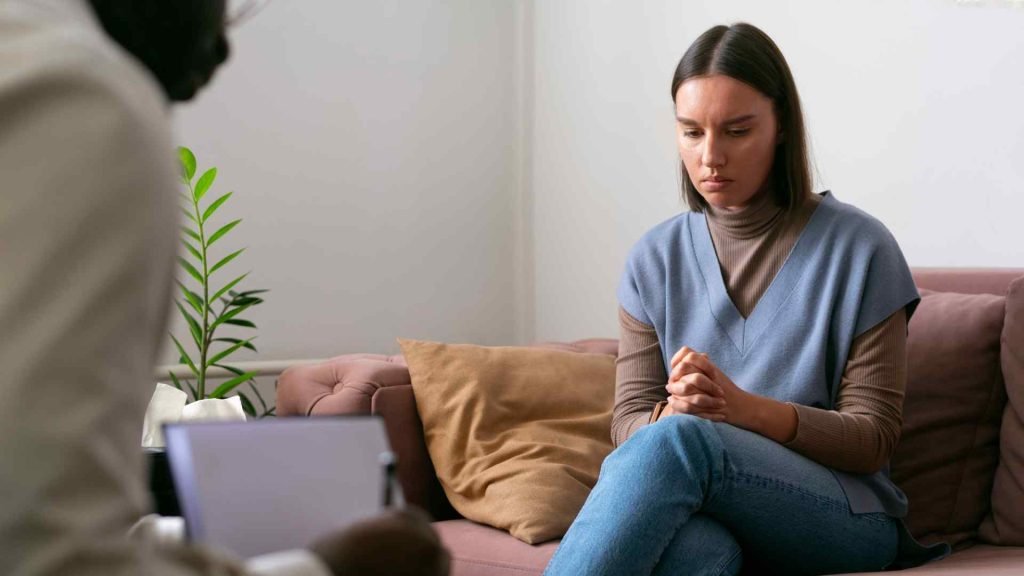Cocaine, also referred to as coke, crack, or snow, is a highly addictive stimulant that creates powerful feelings of euphoria by altering brain chemistry. However, this same mechanism makes withdrawal extremely difficult, as the body and mind become dependent on the drug for pleasure and stress relief. The psychological hold of cocaine often leads to cycles of repeated use, making it crucial to adopt strategies that help break free from its grip.
Successfully managing cravings requires a comprehensive approach that incorporates lifestyle adjustments, therapeutic support, and structured interventions. This article provides guidance on proven techniques to help individuals regain control over their cravings and build a sustainable path toward recovery.

Table of Contents
ToggleIdentify Your Triggers
Recognizing the environmental cues, social situations, and emotional stressors that trigger your cocaine cravings is a critical first step in maintaining sobriety. To avoid relapse, you must identify these triggers and develop strategies to cope with them effectively.
Start by reflecting on your past drug use and pinpointing the specific locations, people, or circumstances that often preceded or accompanied your cocaine consumption. These could be certain neighborhoods, hangouts, or even particular friends who still use drugs. Once you’ve identified these triggers, it’s essential to create a plan to avoid or navigate them.
Consider altering your routine to minimize exposure to these high-risk situations. If certain friendships or social circles are closely tied to your drug use, it may be necessary to establish boundaries or distance yourself from these relationships.
Joining support groups can provide a safe space to share your experiences and learn from others who’ve faced similar challenges in identifying and managing their triggers.
Whether you are seeking a faith-based approach or a more traditional path to recovery, New Chapter Recovery’s compassionate team is here to support you every step of the way through their Cocaine Addiction Treatment Program in New Jersey.
Engage in Physical Activity
Exercise releases endorphins, creating a natural high that helps counteract urges and improves your mood. Regular physical activity also reduces stress and anxiety, which are significant triggers for cravings during recovery.
Establishing a consistent workout routine provides structure and fills free time, minimizing opportunities for relapse. Even short bouts of exercise can enhance mental clarity and focus, which may be impaired during withdrawal. Activities like running, swimming, or group sports not only promote physical health but also foster social connections that can support your recovery efforts.
Engaging in physical activity is an effective coping strategy that strengthens your resilience against relapse. It’s essential to find activities you enjoy and can commit to regularly.
Incorporate Healthy Nutrition and Hydration
Maintaining a balanced diet plays a crucial role in stabilizing mood, energy levels, and overall well-being during recovery. Nutrient-rich foods, such as lean proteins, whole grains, and healthy fats, help regulate dopamine production, reducing the intensity of cocaine cravings. Staying hydrated is equally important, as dehydration can amplify withdrawal symptoms and increase irritability, making cravings more difficult to manage.
Incorporating specific vitamins and minerals, such as magnesium and B-complex vitamins, can aid in restoring brain function and reducing stress-related urges. Avoiding processed sugars and caffeine can also help maintain stable blood sugar levels, preventing mood swings that could trigger cravings. By prioritizing nutrition and hydration, individuals in recovery can strengthen their resilience and create a more stable foundation for long-term sobriety.
Explore Holistic Therapies
Engaging in practices like meditation, yoga, and qigong can help reduce stress and anxiety, which are often associated with cravings for cocaine.
Techniques like Reiki and acupressure aim to balance the body’s energy fields, which can help alleviate emotional and psychological stress. By addressing these underlying issues, energy medicine can reduce the emotional drivers of cocaine cravings.
Research indicates that religious and spiritual beliefs can significantly contribute to reducing substance use and enhancing treatment outcomes. For example, spirituality is linked to fewer relapses in alcohol use and a higher likelihood of long-term recovery from cocaine dependence. Engaging in practices such as prayer, meditation, and being part of religious communities offers support and alternative coping strategies. These activities can help prevent the onset or continuation of substance use.

Build a Support Network
Building connections with supportive friends and family members who understand your journey can provide the encouragement and accountability you need during recovery.
Consider joining support groups like Narcotics Anonymous or Cocaine Anonymous, where you’ll find a community of individuals who share similar experiences and can offer valuable insights into navigating cravings.
Open communication is key when it comes to managing cravings. Don’t hesitate to reach out to trusted loved ones when you’re struggling, as their understanding and emotional support can help alleviate the intensity of your urges.
Participating in structured group activities or therapy sessions can also enhance your motivation and commitment to sobriety. Studies show that actively involving family members in the recovery process leads to higher success rates, as educating them about addiction promotes empathy and support during challenging times.
Pursue Professional Treatment
Specialized addiction treatment programs provide tailored approaches that address both the physical and psychological aspects of cocaine withdrawal.
These treatment centers offer a structured environment, medical supervision, and a variety of therapies to help you navigate your recovery journey.
Engaging in behavioral therapies, such as Cognitive Behavioral Therapy (CBT) and Dialectical Behavior Therapy (DBT), can significantly reduce your cocaine cravings and improve your coping strategies.
The ongoing support and aftercare, often included in professional treatment programs, are essential for encouraging commitment to recovery goals.
By pursuing professional treatment, you’ll gain access to the resources, tools, and support systems necessary to overcome cocaine cravings and build a strong foundation for lasting recovery.
Final Thoughts From New Chapter Recovery
Overcoming cocaine cravings can be a difficult journey, but you don’t have to face it alone. At New Chapter Recovery, we’re dedicated to helping you break free from addiction and reclaim your life. We believe that with the right combination of evidence-based therapy, spiritual growth, and a supportive community, you can achieve lasting recovery and start the next chapter of your life filled with hope and confidence. Our comprehensive outpatient treatment programs in NJ are designed to provide you with the tools, support, and spiritual guidance necessary to maintain sobriety and prevent relapse.
Frequently Asked Questions
How long do cocaine cravings typically last during recovery?
Cocaine cravings can last anywhere from a few days to several months, depending on the individual and the severity of their addiction. Acute cravings are usually strongest in the first few weeks after stopping use, while post-acute withdrawal symptoms (PAWS) can cause intermittent cravings for months or even years. Engaging in therapy, lifestyle changes, and support groups can help manage these cravings over time.
Can someone quit cocaine without experiencing severe cravings?
While some individuals may experience mild cravings, most people who quit cocaine face at least some level of craving due to its impact on brain chemistry. The intensity varies based on factors like frequency of use, duration of addiction, and personal health. A structured detox plan, therapy, and coping strategies can help minimize the severity of cravings.
Is it possible to completely eliminate cravings, or do they persist indefinitely?
Cravings typically decrease over time, but they may not completely disappear, especially in response to triggers like stress or environmental cues. Many people in long-term recovery report occasional cravings, but they become more manageable with proper coping strategies. Engaging in a healthy lifestyle and continued therapy can significantly reduce their impact.
Are there specific breathing techniques that can help control cravings?
Yes, deep breathing techniques such as diaphragmatic breathing, box breathing, and the 4-7-8 method can help reduce cravings by calming the nervous system. These techniques promote relaxation, lower stress levels, and shift focus away from the urge to use. Practicing mindfulness-based breathing regularly can make cravings less overwhelming and improve emotional regulation.






